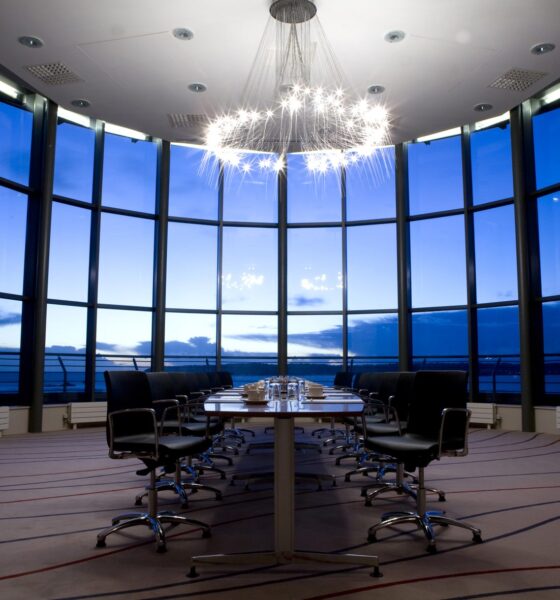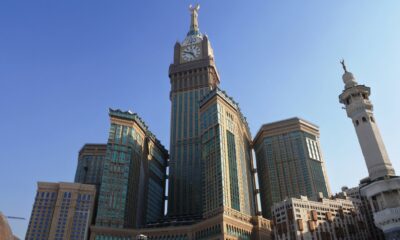

Environment
Operating in a global context: sustainability in the hospitality sector
Inge Huijbrechts, vice-president of responsible business at Rezidor Hotel Group, writes how the hospitality industry is helping tackle key sustainability challenges.
In 2012, the World Travel & Tourism Council (WTTC) estimated that the global travel industry generated over 260m jobs (one in 11 jobs worldwide) and contributed 9% of the global gross domestic product. In the same year the number of global travellers surpassed one billion. An industry of this size has a considerable impact on social, economic and environmental conditions around the world.
The United Nations Environment Programme has forecast that if the tourism industry continues to operate in the way it does today, energy use and emissions will double by 2050, with water use increasing to 2.5 times current levels. Buildings are already responsible for 30% of global energy consumption, yet most are very inefficient. Energy savings of between 20 and 30% could be achieved if commercial buildings were designed to be more efficient.
Hotels that make investments in green technologies and the green economy will help to reduce the impact of tourism. The hospitality industry has a growing responsibility to develop and adapt its business operations and engaging all stakeholders, including our customers, in this process is key.
Consumer research shows that sustainability is of increasing importance when making travel decisions. Ninety-three per cent of Conde Nast Traveller readers surveyed in 2011 stated that travel companies should be responsible for protecting the environment, and 58% stated that their hotel choice is influenced by the support the hotel gives to the local community.
Furthermore, a 2013 Cone/Echo Global CR Study found that 91% of global consumers are likely to switch brands to one associated with a good cause. However, this idea is not a new one – with a 1996 global study by Business in the Community revealing that 86% of consumers said that they would have a more positive opinion of a company that is doing something to make the world a better place, regardless of the cause or issue concerned.
It is clear then that in order to meet objectives and see results, that communication to all stakeholders is key. Providing guests and customers with information and opportunities to be involved with sustainability activity – in a fun way – will not only have a positive effect on results, but will also make staying at pro-active hotels more appealing to environmentally discerning travellers.
To meet this demand, we’ve integrated environmental options in our loyalty programme, Club Carlson. It is the first loyalty programme in the hospitality industry to commit to a global carbon offsetting initiative for all meeting and events and provides individual members with the opportunity to redeem Gold Points to offset the carbon of their personal travel and support wind farms in India and tree-planting in Kenya.
As part of our continued efforts to inform and make it easy for our guests to participate in responsible business activities at our hotels, over 200 of our hotels across the world participated in Earth Hour this year. Of particular success was the Radisson Blu Hotel, Birmingham. Turning off 90% of front of house lighting and substituting this with numerous tea lights, guests were encouraged to support the cause by turning off their guestroom lights during the special hour. Guests at the Radisson Blu Filini restaurant experienced a romantic and environmentally friendly dinner with the entire restaurant illuminated with tea lights.
Further guest incentives have been piloted in our Park Inn by Radisson hotels, whereby guests are offered the option to forego housekeeping services in exchange for Club Carlson points and a Rezidor donation to World Childhood Foundation. Ongoing initiatives also include allowing guests to indicate whether they’d like towels washed to save on water and resource usage.
Resources
Hotels are extremely resource-intensive, particularly in terms of energy and water use. They also impact the natural environment through food use and waste generation.
The UN has estimated that by 2050, the world’s need for drinkable water will double and the need for fresh water for agriculture will increase by 80%. Recognising this urgent need to continuously reduce water consumption will be key to making a change to this troubling statistic.
Roughly one third of the food produced in the world for human consumption every year – approximately 1.3 billion tonnes – is lost or wasted. Global population growth projections estimate there will be an additional 2 to 3 billion people to feed in the world over the next 40 years. This will result in a 70% increase in demand for food by 2050.
As food and drink represents over 30% of the group’s revenue, Rezidor recognises the importance of reducing waste and the resource intensity of the food and drink supply chain. Reducing water consumption in our hotels – without compromising service quality for guests – is a key priority. By the end of 2013: 71% of guestrooms had water saving toilets, 79% of guestrooms now have aerators to control tap and shower water flows, 7% of hotels recycle grey water, 6% collect rainwater for irrigation, car washing and other needs and 12% of hotels use waterless urinals.
Inge Huijbrechts is vice-president of responsible business at Rezidor Hotel Group. All of its activities form part of its Responsible Business programme. To learn more, please click here.
Photo: Carlson Rezidor
Further reading:
International Tourism Partnership: the hotels that are shaping the future of tourism
New tourism report: hotel workers plagued by low wages and long hours
Top holiday tips for responsible tourists


 Environment12 months ago
Environment12 months agoAre Polymer Banknotes: an Eco-Friendly Trend or a Groundswell?

 Features11 months ago
Features11 months agoEco-Friendly Cryptocurrencies: Sustainable Investment Choices

 Features12 months ago
Features12 months agoEco-Friendly Crypto Traders Must Find the Right Exchange

 Energy11 months ago
Energy11 months agoThe Growing Role of Solar Panels in Ireland’s Energy Future




























